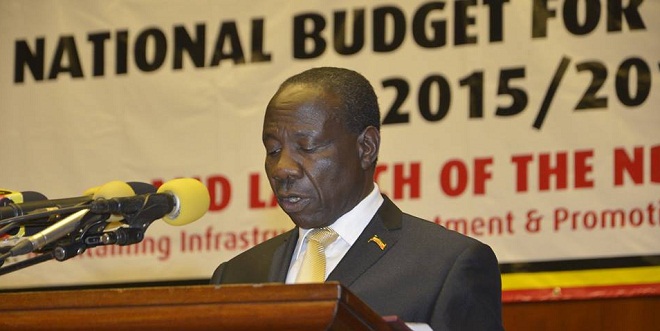
Kyambadde’s objections to Kasaija directive
Kasaija said the ministry had agreed with the rice millers to sell their product at not more than Shs3, 000 per kilogramme on retail, down from the current Shs4, 500 per kilogramme.
He had also requested the third Prime Minister and Minister of East African Community, Kirunda Kivejinja, to proceed and obtain the duty waiver from the East African Community secretariat.
But this did not go well with Kyambadde. She rejected the new incentive arguing that it will hurt local rice producers. She said her ministry’s position was that the import of unprocessed rice should be within a short period with clearly stated volumes to deal with famine.
Kyambadde, however, did not exactly state what her ministry will do if the finance ministry fails to adhere to the conditions.
Data from the Ministry of Agriculture, Animal Industry and Fisheries shows that rice production in the country stands at 237,000 metric tonnes yet consumption stands at 444,468 metric tonnes per annum.
In addition, the country also re-exports rice to the neigbhouring markets especially South Sudan and the eastern Democratic Republic of Congo.
This means that Uganda alone faces a shortage of 207, 468 metric tonnes of rice per annum, with the deficit plugged by imports. The government is now looking at producing at least 680,000metric tonnes of rice by 2020 valued at US$376million.
On April 26, the Speaker of Parliament, Rebecca Kadaga, weighed-in in support of Kyambadde, raising concerns as to why the finance ministry was exempting tax on imported unprocessed rice instead of protecting local producers.
“What is the rationale for waiving taxes on imported rice? Is it import substitution, because we grow rice in this country,” Kadaga said.
“The government needs to tell us how they are going to handle local producers because we have been talking for a long time, Buy Uganda Build Uganda and now we are promoting rice of the foreigners and taxing our own rice here.”
In a bid 2 mitigate food shortage & high cost of rice in the mrkt, Gov’t allowed importation of upto 50,000 (MT) of unprocessed rice.
— Anne.K (@AKyambadde) May 16, 2017
Trade minister Amelia Kyambadde issues another directive capping retail price of rice at Shs3,000 per kg to mitigate the hunger @mtic_uganda pic.twitter.com/UOhpHDyXCy
— ssali godfrey (@godfreyssali21) May 15, 2017
Rice millers have been appealing since 2015
Rice millers in the country started to request for a tax waiver on the commodity in 2015 following shortage. This necessitated the finance ministry to introduce a special tax regime, enabling millers to pay $ 250 per metric tonne for unprocessed rice in the 2016.
However, in January this year, the government removed the incentive saying the decision was made without adequate consultation with sector actors and was probably based on a misrepresentation of facts about the level of the local rice production.
Speaking to millers during the launch of the Uganda Millers Council on Feb 07, Kyambadde said the decision by the East African Community to adopt the Common External Tariff (CET) as a policy to impose 75% tax on rice imports outside the bloc has attracted investment in the country’s rice industry over the past decade.
She said the industry attracted $360 million private sector investment in the rice industry through establishment of small and large scale millers as well as small and large scale rice farmers.
But the availability of rice at low and stable prices has lately become very political to the extent that governments have to handle it keenly.
For instance, a rise in rice prices coupled with inadequacy of supply were contributing factors to defeats in past presidential elections like President Carlos Garcia in 1961 and President Diosdado Macapagal in 1965 in the Philippine, according Elfren S. Cruz, a don at De La SalleUniversity (DLSU).
“Even in the more advanced countries of East Asia – China, Japan– governments have tended to intervene in the rice markets through taxes, subsidies and market protection in order to protect the domestic rice market from fluctuations in the international rice market,” he said.
He said the five largest rice importers in the world are China, Nigeria, Philippines, Iran and Indonesia, and it is expected that African countries will begin to import more rice as their economies begin to improve.
Millers said they welcome the new tax waive saying it will lower the price of rice enabling majority of the population to purchase on their own.
RELATED STORY
BUSINESS: Uganda’s rice politics https://t.co/L2Pf9usmLd pic.twitter.com/cfSesCqjFe
— The Independent (@UGIndependent) May 16, 2017
 The Independent Uganda: You get the Truth we Pay the Price
The Independent Uganda: You get the Truth we Pay the Price



